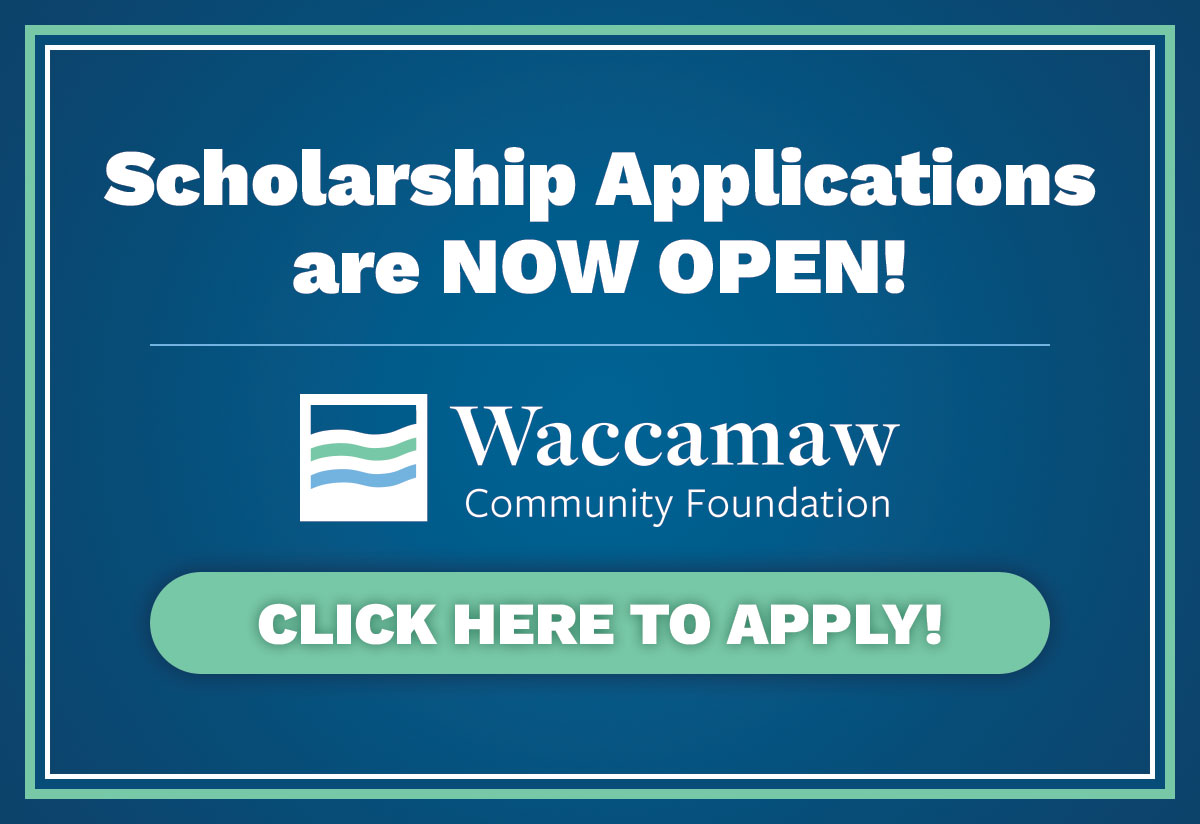A letter from Chairman of the Board of Directors Brent Groome and WCF Director Angel Johnson-Brebner
To our friends, donors, partners and community,
Almost two years ago, Waccamaw Community Foundation adopted a new set of values to guide our work. We committed to inclusion with equity for all of those living in our communities. We also committed to having courage and creating and leading positive and transformative change. It is important for us to acknowledge that although we committed to inclusion with equity and courage, Waccamaw Community Foundation has not done enough to fight for equity and justice for all people in our region. We must do more to strengthen our communities by working toward structural and systemic change.
Today, we are announcing three strategic initiatives to do just that. First, we know we will have to focus internally to learn and create new habits of mind for our external work to reflect our values. Currently, we require all staff to participate in the Racial Equity Institute’s training hosted by the YWCA of Greater Charleston. We will now expand that requirement to include all WCF Board members so that we, as an organization, have a shared language and shared understanding of racial bias and inequities at a structural level. In partnership with the Frances P. Bunnelle Foundation, we will also bring the Racial Equity Institute training to Horry and Georgetown Counties to offer the training to leaders working here in this region.
Waccamaw Community Foundation will soon launch the Waccamaw Unity Fund with a purpose of promoting long-term solutions to systemic issues contributing to racism and inequalities impacting Black and other minority communities. We will also examine our current grantmaking and programmatic work to create a framework that embeds a racial equity lens in how we award grants and work with our nonprofit communities.
With our philanthropic partner, Coastal Community Foundation, we are having individual, virtual conversations with residents, donors, grassroot leaders, elected officials, and nonprofit leaders from around the region to identify the social justice goals and priorities of our communities and build an equity framework for us to implement as a region to dismantle systemic racism. We will share more about our findings from these conversations, the plan of action, and what we all can do in these efforts to fight structural inequities.
The problems created by structural racism have been entrenched in our culture for centuries, and it will take consistent, honest and intentional work to heal them. More than 155 years since slavery was abolished, justice for Black citizens remains an unfulfilled promise. After a brief, failed Reconstruction effort in the South, the Jim Crow era began, and for 87 years, systematically kept Black people from accessing adequate housing, education, healthcare, public safety and financial success.
The grip of Jim Crow finally let up when the Civil Rights Act was signed into law in 1964, but it did not dismantle the systems that still contribute to injustices today. We were reminded of that reality in the wake of the Emanuel AME tragedy in Charleston five years ago. We came together to remove the Confederate Battle Flag from the Statehouse grounds, and to bring forth swift justice. But, in terms of fixing the complex problems created by centuries of unjust systems, our state and our communities have struggled.
Today, our country and our community is crying out for change after the deaths of Ahmaud Arbery, Breonna Taylor and George Floyd. Our region must hear those cries, and as the community foundation, we will do our part to answer the call.
We ask our donors, partners, grantees and friends to join us in not only standing for equity and justice but working for equity and justice. Contribute to the Waccamaw Unity Fund, tell others about this work and encourage positive engagement, and share your feedback and ideas with us. Mahogany L. Browne in her poem “Instructions on Listening to the Trees” says “When you are part of a community, you have to think about others. Like any true community, we must nourish and care for one another if we are to grow.” We have a lot to learn and a lot to do.
With courage and conviction,
Brent D. Groome Angel Johnson-Brebner
WCF Board Chair WCF Director



